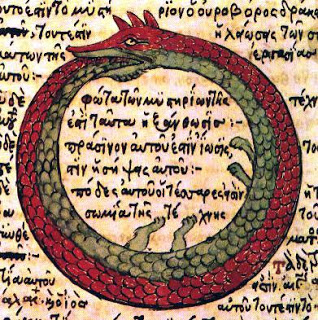Hey folks.
I’m just wondering if anyone has a quality ref for conflict as a ‘line of development’ (aka, for use as assessment/in practice)?
I know DMH has written some good stuff from a zen perspective. And/But, just wondering if there has been a way to map this into a framework?? (it’s for my wife!!)
(Tim)
“Il y a de la pluie, mais c’est pas grave"
I doubt that conflict resolution is a single line of development, rather it is a blend of skills, a blend of lines of development. I’m a family mediator in England and have written a few articles about dispute resolution, comparing the narrow scope offered by the dialectic (legal) process within family disputes compared to the breadth of solutions that mediation can access,
Interestingly, mediation can work too well. The parties within the mediation can access a state of functioning higher than they are used to. Within this state they access a solution to their issue. That solution still needs to be lived out in the real world (outside the mediation setting), In the real world their stage of functioning isn’t capable of maintaining the solution they accessed in their higher state of functioning and so rapidly falls apart. They then go to a legal setting as it matches their day to day level of functioning.
My current line of development in family mediation is the extent to which Taleb’s ideas of anti-fragility can inform mediation outcomes. I.e. a family re-creating itself following the parents’ separation can be helped by a way forward that benefits from, rather than is hampered by the shocks and demands of daily life (which shocks and demands would otherwise cause the solution to crumble away).
It’s a fascinating area. In answer to your question, the time is ripe for you to develop your own map and framework and see how it works out. I look forward to hearing about your progress.
1 Like
Thank you, I’ll check out the anti-fragility link.
Interesting, I think your point about what i would place in the area of “scaffolding and downward assimilation”… How do we generalise out of mediated contexts? How do we create new structures away from developmentally supportive contexts?
And I like this notion of legal/dialectic being a fallback ‘relational logic’ it’s very recognisable… Especially bearing in mind cultural/history of relating (1st, 2nd, 3rd person wise) and if one partner is speaking a different ‘developmental code’…
My own personal interest in conflict resolution as a line of dev, lies specifically in a sense I have that people just don’t know how to manage a number of related polarities (sorry, a bit of a meshwork of terms here):
Literal … Figurative
Sincerity … Irony
Fact … Fiction
Playful … Serious
Details … Meta themes (contents or understanding ‘we space’ patterns arising)
Defense mechanisms … Witnessing all that arises with compassion
Hmmm… Lots to think about. I appreciate your engagement on this topic!
Interesting stuff again, thank you. Another aspect of my mediation relates to what (I think) you’re saying. Do we work on a solution where the work is at the same level of the issue - a systematic approach - find the bit that’s broken, fix it, put it back into the system and carry on. Here we don’t do away with the developmentally supportive structures. Or do we take a systemic approach - look at the system as a whole and see the problem as arising from the interaction of its co-producing parts - and look to the solution being an emergent property (different level) arising from our newly arranged interaction of co-factors. Here one aspect of the emergent solution will be its own supportive developmental structures.
Enquiring into the related polarities will give you a handle into whether to go into systematic investigation or systemic investigation. Are they fixed, what is the consequence of challenging them, Are they fixed but open to enquiry because sorting the problem is more needed than maintaining the existing polarity.
Ken talked about dancing a little in front of people and inviting them into your landscape. That seemed to be a brilliant piece of advice when thinking about how to turn this approach to conflict resolution into a practice.
2 Likes
Thanks Andrew. There is a lot in what you say here.
For now. I would also like to add that I’m very interested in conflict management (relates to resolution but more ongoing and partial/ambiguous at times) but/and a practice arising for me in this territory (a friend of mine calls it the 4th territory although the Jungian sense of ‘symbols of trans’ or Ken’s ‘ueroboric self’ also come to mind) is co-creation and listening whilst acting in vuca/complex environments.
Okay. I’m off to my TKD class, speak soon i hope.

